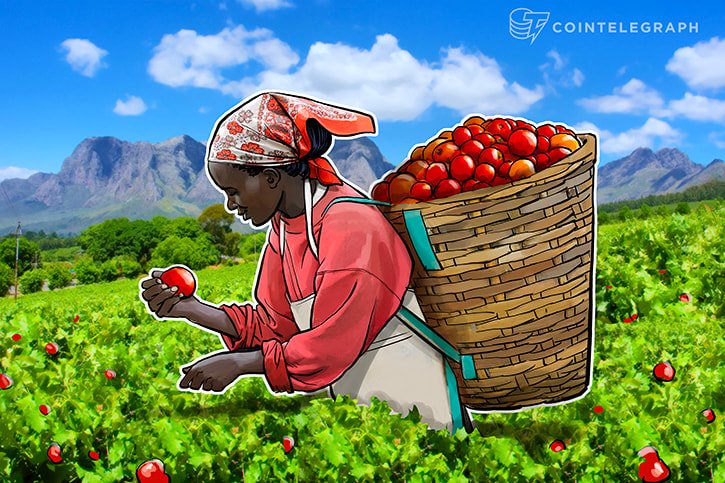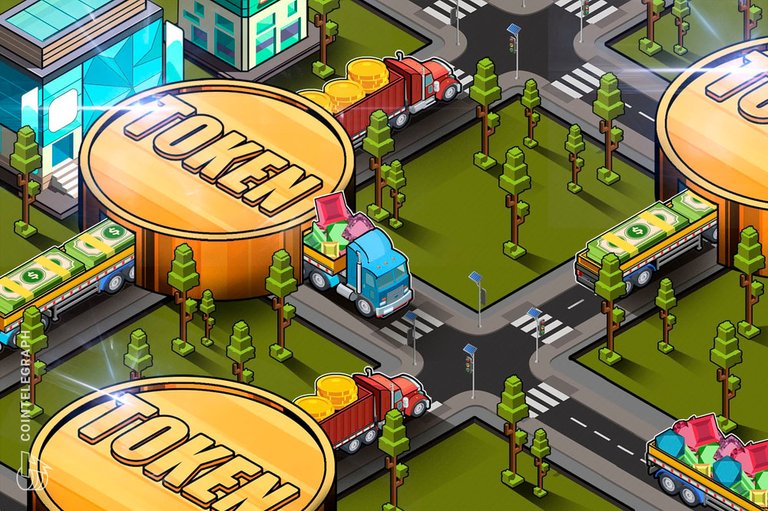
We are moving towards interesting times in the business world though the vast majority do not seem to realize this.
Blockchain technology is an amazing gift to not just business developers but also end users or consumers. Depending on the industry, one party tends to bear increased cost on transactions and this is largely due to the stringent realities of the sector.
For example, the rigid nature of fiat currencies poses increased cost for global transactions, making business owners or customers experience added cost on transaction amounts.
When we look further to settlement of goods and services, we find yet another flaw which is the lack of traceability and transparency in the system, resulting in sometimes loss of goods, funds or added service costs.
Blockchain solves these flaws by providing a platform that is void of regional fiat limitations and at the same time, offers heightened transparency and traceability.
The technology behind NFTs is something I've talked about a lot in the past, particularly on the notion that they are vastly under-leveraged for the value they bring to the business world.
One example I made, to which I can always recall, is how NFTs can be integrated into product markets like Fashion to protect brand identity and increase consumer trust and satisfaction.
The company of focus was Nike as it is one of the most robbed brands in the world. There's a ton of Nike-branded products out there but the majority are not produced by the company.
As a result, end-users are buying up fake products, sometimes at high prices and they often lack the quality of Nike originals, leading to dissatisfied customers and also a revenue loss.
Unless Nike makes “in the shadows deal” with third-party companies to sell under its brand identity, the Fashion powerhouse could leverage NFTs as a form of authentication for each product originating from the company.
Such development enables customers to easily verify the originality of purchased products, thereby increasing Nike’s revenue and consumer satisfaction.

AgriDex to Leverage NFTs To Solve Agriculture-based Transactional Flaws
AgriDex caught my attention reading through an interview with the CEO on Cryptoslate when he made mention of potential savings on costs.
The choice of blockchain for building AgriDex isn't exactly industry favorite(Solana), however, the mission outlined sets the company apart.
In a move that could reshape the global agricultural landscape, AgriDex is setting out to bring the $2.7 trillion agricultural industry onto the blockchain. In this exclusive CryptoSlate interview, Henry Duckworth, CEO and co-founder of AgriDex, unveils his vision for revolutionizing the way agricultural commodities are traded and tracked worldwide.
Fresh off a $5 million pre-seed funding round, AgriDex is leveraging Solana’s high-speed, low-cost blockchain to tokenize crops and streamline agricultural transactions. With promises of 10-40% cost savings per trade and near-instant settlements, AgriDex aims to tackle long-standing issues in the industry, from opaque supply chains to high remittance fees.
First thing to note here is that we are dealing with a $2.7 trillion ecosystem. This is a massive value network that successfully on-boarding just 20% of that value onto crypto brings inflows that exceeds Ethereum's current market capitalization.
That said, when we shift our attention towards the potential savings on cost, which is 10-20%, we enter into a new value chain.
What do I mean? Typically, when we talk about a system being so efficient that it saves a lot on cost, most people just think about production-side costs. But this is the agricultural sector we are dealing with, and such reduction in cost would mean a lot more fundamental benefits.
The agriculture industry, despite being valued at $2.7 trillion, is hampered by opaque and fragmented supply chains. These issues result in high transaction costs, slow settlement times, and a lack of transparency, leading to inefficiencies and potential fraud. Farmers often struggle to receive fair prices for their produce, while consumers pay more than necessary. Remittances currently take 3-7 days to process, with fees averaging 6% and sometimes reaching up to 10% per trade.
AgriDex’s platform leverages blockchain technology to tokenise agricultural commodities, facilitating the listing and buying of various crops on its marketplace. Once a deal is finalised, it’s secured by minting an NFT that records all key transaction details.
We achieve instant settlements, high throughput and low fees as it’s built on Solana. Each transaction on AgriDex is represented by minting an NFT that permanently preserves product, pricing, payment, and any other necessary details. The Layer 1’s ability to compress NFTs allows AgriDex to develop a scalable NFT-based supply chain solution and deliver cost savings of 10-40% on each transaction.
Their primary use of NFTs on Solana seems to be directly related to the network's NFT compression technology. That said, the use of blockchain technology saves on remittances and increases their settlement times.
One interesting thing about these NFTs is that they are minted with detailed product info from quantity and origin, buyer's and seller's info, labeling and packaging details, and many other transactional details and documents.
This makes for the agricultural sector to achieve increased transactional transparency and product traceability.
Looking back on potential savings on cost. If AgriDex succeeds on its mission, we are effectively moving into an era where people can get access to cheaper agricultural products and produce.
This is fundamentally the most important part of migrating all related trades onto a blockchain platform. By reducing the cost shared amongst production companies and middle-tradesmen, consumers are in position to get cheaper goods for consumption and that is a major global win.
This is the power of blockchain technology.
Posted Using InLeo Alpha